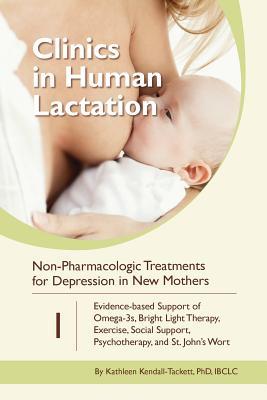Read Non-Pharmacologic Treatments for Depression in New Mothers: Evidence-Based Support of Omega-3s, Bright Light Therapy, Exercise, Social Support, Psychotherapy, and St. John's Wort - Kathleen Kendall-Tackett | PDF
Related searches:
Pharmacological and non-pharmacological treatments for the
Non-Pharmacologic Treatments for Depression in New Mothers: Evidence-Based Support of Omega-3s, Bright Light Therapy, Exercise, Social Support, Psychotherapy, and St. John's Wort
Pharmacologic and Nonpharmacologic Treatment for Acute Cough
Treatments for Tinnitus
Eye Disease Symptoms and Treatments
The Best Treatments for Neuropathy
Osteoporosis Treatments and Relief
Non-Pharmacological Pain Management Therapies for Adults
Non-Opioid and Non-Pharmacologic Treatment Modalities
Pharmacologic and Nonpharmacologic Treatments of Post
5 Non-Pharmacological Treatments for Depression - MedShadow
NONOPIOID TREATMENTS FOR CHRONIC PAIN
Nonpharmacologic Treatments for Patients With Sleep Disorders
NONPHARMACOLOGIC TREATMENTS FOR - VA HSRD
Non-pharmacological treatment for Parkinson disease patients with
Non-pharmacological Treatments For Anxiety Intervention
• many patients are using non-pharmacological treatments including herbal medicine or complementary and alternative medicine (cam) to manage.
Chronic pain outside of active cancer treatment, palliative care, and end-of-life care. Evidence suggests that nonopioid treatments, including nonopioid medications and nonpharmacological therapies can provide relief to those suffering from chronic pain, and are safer.
No treatment nonpharmacologic, nonhormonal interventions: yoga, tai chi, and qigong.
Dec 16, 2011 nonpharmacologic treatments for patients with sleep disorders and pain how pain affects sleep cognitive-behavioral therapy biofeedback.
These may be minor conditions that clear up on their own or serious conditions that lead to permanent loss of sight.
For this reason, symptom scores will drive the decision for pharmacologic therapy. Nevertheless, all infants, regardless of initial manifestations, should be first be managed with non-pharmacologic approaches which in turn, should not be considered as the sole alternative to drug therapy, but rather, as the base upon which all patients are treated.
What are some common therapies to help control pain? heat helps decrease pain and muscle spasms. Apply heat to the area for 20 to 30 minutes every 2 hours for as many days as directed.
Non-pharmacological treatments cognitive behavioural therapy psychotherapy and psycho-educational interventions behavioural management therapy.
What is nonpharmacologic treatment for cancer pain? these therapies are used in addition to medicine to decrease or control cancer pain. Talk to your healthcare provider about the right therapy for you: heat helps decrease pain and muscle spasms. Apply heat to the area for 20 to 30 minutes every 2 hours for as many days as directed.
Other non-pharmacological pain management may utilize alternative therapies such as comfort therapy, physical and occupational therapy, psychosocial therapy/counseling, and neurostimulation to better manage and reduce pain.
Interventions—pharmacologic treatments (defined as any drug used to treat ptsd, whether approved by the fda for any use in the united states or not, including dea schedule i drugs), nonpharmacologic treatments including complementary and integrative approaches, and combination of pharmacologic and nonpharmacologic treatments.
Non-pharmacologic therapy for type 2 diabetes diabetes self-management education and support (dsme/s) the american diabetes association standards of medical care recommend that all patients receive education and on-going support according to the national dsme/s standards when diabetes is diagnosed and as needed thereafter. In spite of provider frustration about patients who do not achieve.
Nonpharmacological treatments: exercise, cognitive behavioral therapy, interdisciplinary rehabilitation medications • first-line: acetaminophen, non-steroidal anti inflammatory drugs (nsaids) • second-line: serotonin and norepinephrine reuptake inhibitors (snris)/tricyclic antidepressants (tcas) migraine preventive treatments • beta-blockers.
Oct 23, 2017 non-pharmacological treatment for people with moderate or severe depression, provide a combination of antidepressant medication and a high.
It's not a disease in itself but rather a symptom of another condition. There is no cure for tinnitus, but there are a number of treatments.
Get the latest news and education delivered to your inbox ©2020 healio all rights reserved. Get the latest news and education delivered to your inbox ©2020 healio all rights reserved.
Non-pharmacological treatment for parkinson disease patients with depression: a meta-analysis of repetitive transcranial magnetic stimulation and cognitive-.
Therapies physical therapy acupuncture yoga tai chi massage stress management: relaxation techniques, breathing, visualization, meditation biofeedback.
Acupuncture is a traditional chinese medicine technique in which thin needles are inserted into the skin at specific points on the body with the aim of balancing the flow of energy in the body to reduce symptoms of various conditions, including pain, insomnia, and depression.
It is not defined how long non-pharmacologic therapy should be tried before attempting other measures: this depends on the patient, the severity of the insomnia, or the severity of the illness - a treatment regimen of 7-8 weeks shows to be effective.
We continue to monitor covid-19 cases in our area and providers will notify you if there are scheduling changes. We are providing in-person care and telemedicine appointments.
An estimated 17% of americans will experience depression at some point in their lives. Antidepressant medications such as selective serotonin reuptake inhibitors (ssris), the most commonly used drugs for depression, are usually the first-line treatment, along with talk therapy.

Post Your Comments: